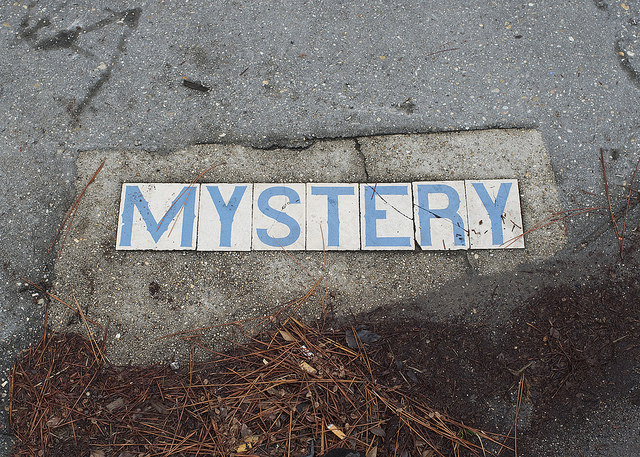Second Sunday in Lent, Year A
Lessons: Genesis 12:1-4a, Psalm 121, Romans 4:1-5, 13-17, John 3:1-17
Theme: God’s faithful and generous people are invited to ponder and explore the rich mysteries of faith in order that they may be faithful stewards of them.
Key Scripture: Nicodemus said to him, “How can anyone be born after having grown old? Can one enter a second time into the mother’s womb and be born?” John 3:4
Preaching/Teaching Reflection
For people who love to read mysteries, attend plays, view films, and watch television shows about mysteries, we sure do have a tough time actually living with mystery. And nowhere is this more acutely reflected than with the mysteries of faith. Maybe that’s partly because drama and fiction usually adhere to the principles of Freytag’s Pyramid with its five predictable parts. We can label the characters and plot the rising and falling action, and we can anticipate a satisfying (most of the time) denouement.
But the life of faith does not follow Freytag’s classic analysis; in fact, the narrative God’s interaction with humankind often defies any logic. Consider: The beginning of creation is not really the beginning because God exists always, and death is most definitely not the end of life. People of faith live in a holy tension of ever-ness of which we see and inhabit only a miniscule fraction in this present reality.
 In this week’s gospel lesson, Nicodemus comes to Jesus under cover of night seeking answers. He realizes that there is something wholly different about this rabbi, that Jesus has to be from God, but he can’t quite wrap his mind around the reality. And instead of answering his questions, Jesus gives Nicodemus even more to ponder. “How can these things be?” Nicodemus asks. Again, instead of an answer, Jesus continues to paint layer upon layer of holy mystery onto the canvas of Nicodemus’ faith.
In this week’s gospel lesson, Nicodemus comes to Jesus under cover of night seeking answers. He realizes that there is something wholly different about this rabbi, that Jesus has to be from God, but he can’t quite wrap his mind around the reality. And instead of answering his questions, Jesus gives Nicodemus even more to ponder. “How can these things be?” Nicodemus asks. Again, instead of an answer, Jesus continues to paint layer upon layer of holy mystery onto the canvas of Nicodemus’ faith.
We don’t know exactly what Nicodemus’ life was like after his covert encounter with the Messiah, but we do know that folks still wrestle today with how to take Jesus and what it means to follow him faithfully and fully. How does one follow a God who won’t be put into easy accessible (or storable) boxes? How does one live as a disciple in a world that likes ready answers and easy solutions? In short, how are we to be good stewards of a faith that even the best of us contends with at times?
While there are no handy-dandy-one-size-fits-all formulas for steward/disciples, we can turn to the pages of scripture and take guidance, comfort, and discomfort from those who have gone before us. Abraham, for example (still Abram in today’s Old Testament lesson), does what so many other faithful folks do when God calls: he goes as the Lord told him. We know it was a journey fraught with blessing and hardship, mistakes and joys, laughter and tears. Yet, through this steward of God’s mysteries today we are still blessed to be called heirs of the promise.
We can thank Paul, whose impassioned writing and powerful witness have been moving others to greater faith and discipleship for centuries. His willingness to bear the story and share the good news of Jesus strengthens and equips us for the journey today. And, of course, we look always to God in Christ Jesus, as the One who loved us beyond measure and without merit–not condemning us for our lack of understanding and faith and human brokenness, but rather loving us to death and beyond so that we might become part of the story that always was and never ends.
Yes, our human temptation, about which we heard last week, compels us to make everything fit nicely into neat, organized, and manageable boxes. We often desire a God we can control, if not fully understand, a God  crafted in our own comfortable image rather than the other way around. When we hold that bit of bread in our hands and hear the words “The Body of Christ given for you,” it’s certainly easier to swallow it down rather than contemplate the holy mystery. When tap water mingles with words in Holy Baptism, we are more prone to take pictures than to hold and dwell in this mystery of the faith — how God uses simple elements of wine, bread and water to fulfill God’s promises of divine presence, love and grace. Jesus, as evidenced by his conversation with Nicodemus and his often obtuse responses to the questions from those around him, consistently nudges us out of our comfort zones into contemplation and into dwelling in the tension of not knowing it all on our own terms but rather having it all through our faith in God.
crafted in our own comfortable image rather than the other way around. When we hold that bit of bread in our hands and hear the words “The Body of Christ given for you,” it’s certainly easier to swallow it down rather than contemplate the holy mystery. When tap water mingles with words in Holy Baptism, we are more prone to take pictures than to hold and dwell in this mystery of the faith — how God uses simple elements of wine, bread and water to fulfill God’s promises of divine presence, love and grace. Jesus, as evidenced by his conversation with Nicodemus and his often obtuse responses to the questions from those around him, consistently nudges us out of our comfort zones into contemplation and into dwelling in the tension of not knowing it all on our own terms but rather having it all through our faith in God.
These mysteries of God — which the mind cannot comprehend, which the heart can feel, but which we believe through faith — bring us closer to the divine. And this is good news worth stewarding with care and sharing with the world.
In Worship
Consider using Psalm 21 for the benediction this week. How might you use it as a blessing to the sinner/saints who have heard the word of God, been fed at the table, remembered their baptism, and are ready to return to the workaday world? Remind the assembly that God goes with us into the world.
With Youth
This week consider the epistle passage from Romans and Paul’s words about faith. If you have time, play the trust game with youth. Pair everybody up with similar sized partners. Designate one person to “trust” the other. Blindfold that person and have him or her stand with arms crossed over the chest. Have the partner stand behind the person and tell that person to “Trust me!” and fall backward. The partner must be ready to stop that person from falling by placing hands in front, palms outward so that the partner’s back will land against the palms. Demonstrate how it works to ensure success. Trade places. Then, with one person blindfolded have the partner guide that person only by voice around a series of obstacles. Trade places. When you are done talk about how it takes faith and trust to do simple games like this. Imagine how much faith and trust Abram must have had to follow God’s direction to leave his country and go into a foreign land. Even our faith is a gift of God–certainly not of our own doing. Our faith finds fullness and expression when we gather together for worship, to share stories, and to encourage one another. Through Abraham’s faith we have been blessed, and now we are called to share God’s gifts of faith, mercy, forgiveness, love, and salvation with others.
With Children
God says, “GO!”
Many children will be familiar with the game “Simon Says.” Begin your children’s time by playing a few rounds of this game. Once all or most of the children are “out” tell them that you want them to try a new game called “God Says.” In this game there are no losers; in fact, everybody can get in on and stay in the game. Ask the children to think of things God tells us to do. Some answers might include worship, pray, love, serve, be baptized, and so forth. Affirm all answers and add others that might be missed. Then tell the children that God told Abram to “Go” into a foreign land and he would be blessed and through him all the families of the earth would be blessed. God tells us to “Go” at the end of each worship service when we are sent back into the world to be a blessing to others and to share Christ’s love with the world.
Consider inviting the children to participate in this week’s sending from worship. Letting them tell each person “Go into the world. Share the love of God! Be a blessing!”
Weekly Stewardship Bulletin Insert
This week’s gospel lesson from John contains the famous verse (John 3:16) that shows up everywhere from televised football games to bargain store knickknacks. Most of the time, however, verse 17 is not included: “Indeed, God did not send the Son into the world to condemn the world, but in order that the world might be saved through him.” This verse gives us reason to ponder the mysteries of faith and God’s amazing love and grace. It also invites us to consider how we steward this beautiful message and share it with others. How will you tell the world about God’s great love this week?
Stewardship at Home
Most people today are indeed people “on the go.” Our schedules are busier than ever, our options are myriad, and opportunity seems to favor the “go-getters” over those who savor the moment and crave a slower pace. As people of God, like our ancestor Abram/Abraham, we are called to “go.” Maybe we are not called to go from our country, kinfolk, and home place, but maybe we are. We are sent every Sunday from worship into the world to be God’s faithful and generous people. Perhaps the question is do we “go” as God’s people, or do we try to “go it” on our own.
This week pay particular attention to your schedule. Are you constantly “on the go”? Do you feel harried and hurried? How much of your “go” time is spent in service to and in relationship with God and your sisters and brothers in Christ? How frequently do you find opportunity to share God’s love and good news with others in your thoughts, words, and deeds? Seek this week to cultivate deeper awareness of how, where, when, and why you “go.” This is one good way to be a better steward of God’s mysteries and amazing grace.
Photos: Coffee Shop Soulja, Punktraum, and rcblezard, Creative Commons. Thanks!
Note: Reprint rights granted to congregations and other church organizations for local, nonprofit use. Just include this note: “Copyright (c) 2017, Rev. Sharron Blezard. Used by Permission.” Other uses, please inquire: thewritelife@hotmail.com.




Leave a Reply